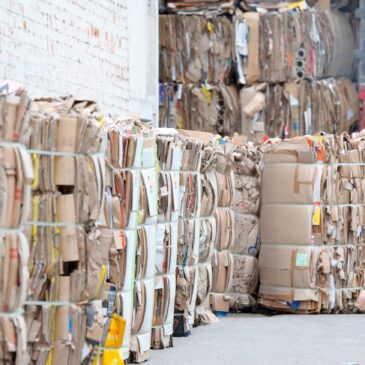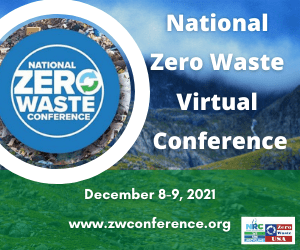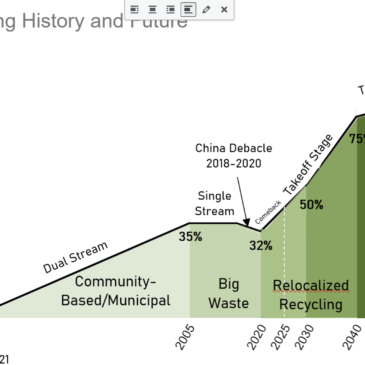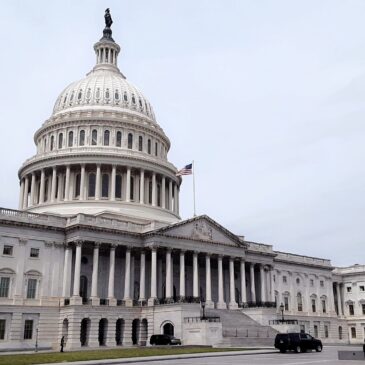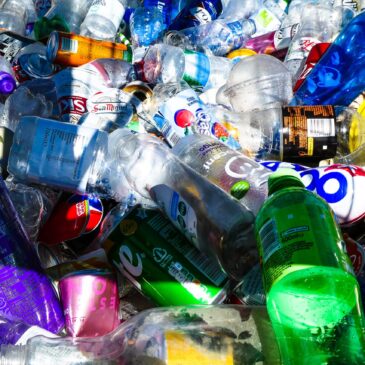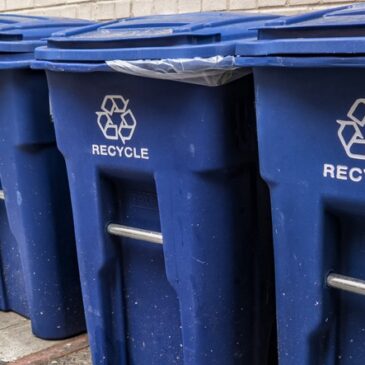Waste to Wealth Resources – Search Results
Return to Waste to Wealth home page
Page 4 of 53
Recycling Infrastructure Campaign: Webinars & More
The RIIT coalition is hosting an ongoing series of webinars to ensure the plan is part of federal infrastructure discussions and rulemaking. These webinars are free to attend, and anyone working in waste and reuse or advocating around these issues is welcome to register.… Read More
New York – Soil Health and Climate Resiliency
New York State’s Soil Health and Climate Resiliency Act aims to reduce the effects of farming on climate change and to enable farmers to adapt to and mitigate the impacts of climate change by focusing on sustainable water management and soil health on farms. It establishes the Soil Health and Climate Resiliency Act, the Soil Health Program, and the Climate Resilient Farming Initiative. … Read More
Building America’s Zero Waste Future — Episode 135 of Building Local Power
On this episode of Building Local Power, host Jess Del Fiacco is joined by Neil Seldman, Director of ILSR’s Waste to Wealth initiative. Jess and Neil interview Gary Liss, Vice President of Zero Waste USA, and Bob Gedert, President of the National Recycling Coalition, about the Recycling Is Infrastructure Too (RIIT) campaign and the proposed American Recycling Infrastructure Plan (ARIP).… Read More
Policies on Soil Health and Carbon Sequestration
Some of compost’s most valuable benefits yield from its ability to efficiently build and bolster soil health. Compost application increases soil organic matter, in turn reducing the need for chemical fertilizers, building soil biodiversity, decreasing the likelihood of plant disease and pest issues, increasing soil capacity to absorb water, and building soil’s overall resilience to extreme weather. Featured here are examples of policies that aim to bring these benefits of soil health and carbon sequestration to fruition through the encouragement of soil-supportive practices.… Read More
National Zero Waste Virtual Conference Announced
Zero Waste USA in partnership with the National Recycling Coalition is excited to announce the National Zero Waste Virtual Conference, December 8-9, 2021… Read More
Commentary Traces History of Modern U.S. Recycling and the Potential for Zero Waste
In this recently published commentary, ILSR says cities and counties need sources of renewable capital for the generation of investment in recycling, composting and reuse infrastructure. They also need guidelines for proper investment strategies… Read More
Webinar Focused on “Best Bottle Bill Possible”
The Recycling Is Infrastructure Too! (RIIT) Campaign continued its Webinar Series on August 24 with a webinar organized by the Institute for Local Self-Reliance. A link to the full webinar is now available. … Read More
Local Initiatives Pave the Way to Zero Waste
Website developed by the US Environmental Protection Agency provide an important series of resources that document the success of bottom-up recycling initiatives that can transform municipal waste programs, re-localize control of recycling, and end the stagnation caused by Big Waste and Big Soda… Read More
Zero Waste Efforts Bring Benefits, Build Community in Gainesville — Episode 131 of Building Local Power
Host Jess Del Fiacco and Neil Seldman, Director of ILSR’s Waste to Wealth initiative, interview three zero waste advocates from Gainesville, Fla. … Read More
Policy Tools for Capacity Building
The Waste to Wealth program seeks to encourage a composting infrastructure that is locally distributed and possesses a diversity of scales, feedstock materials, and end-uses for compost products. For more information, see ILSR’s report on “The State of Composting in the US” for a national snapshot of composting policy and models to replicate. Model Policies
Maryland – Right to Compost for HOAs and Condos
The right to engage in composting is often prohibited or highly restricted for those living within homeowners’ associations (HOAs) or condominiums. Maryland House Bill 248, which became law on May 30th, 2021 without the Governor’s signature, clarifies rights and restrictions on composting regulations in condominiums and HOAs throughout Maryland. The new law, sponsored by Delegate Emily Shetty (District 18), allows condominium and HOA unit owners to subscribe to food scrap collection services and HOA lot owners to compost at home. It will take effect on October 1, 2021. … Read More
Rules to Encourage Composting
Policy is a major driving factor in enabling and mobilizing composting efforts, especially for farmers and local community sites, by providing financial incentives and supporting expansion of infrastructure. A growing number of cities, counties, and states are recognizing the benefits of composting and, accordingly, enacting policy measures that support the creation and expansion of composting programs and efforts.… Read More
In Waste Dive, ILSR Argues That the U.S. Can’t Directly Follow the European Model of EPR
In a new opinion piece published in Waste Dive on July 8, ILSR’s Neil Seldman argues that Europe and the U.S. “live in different recycling and wasting landscapes” and that the European model may not be applicable to the US. … Read More
ILSR Op/Ed in Baltimore Brew: Baltimore’s Recycling Program Needs New Thinking, Not Shiny New Carts
In an op/ed published in Baltimore Brew on July 6, ILSR’s Neil Seldman urges Baltimore city officials to put a windfall of new funding towards a better approach to its existing recycling system, rather than investing in new carts while retaining its current “outmoded and inefficient” system.… Read More
Maryland – Montgomery County Ag Zoning Amendment
In February 2021, the Montgomery County Council unanimously passed the Montgomery County Ag Reserve Zoning Amendment, which addresses limitations on the amount of materials farmers can source from off their farms for producing compost or mulch. This zoning amendment makes it easier for farmers in the county to mulch and compost by allowing more material to be sourced from off their farms.… Read More



